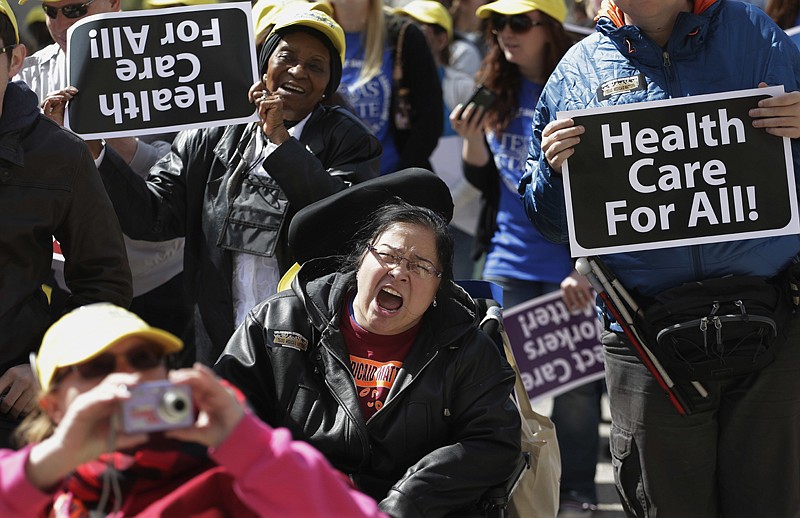AUSTIN-Texas announced Monday that the federal government had approved its request for a temporary extension of a $3.1 billion annual Medicaid waiver-despite the Republican-controlled Legislature's refusal to embrace a key component of the White House's signature health care law.
The agreement, which the Health and Human Services Commission called a "big win for Texas," extends for 15 months, through 2017, a waiver first granted in 2011 that had been set to expire Sept. 30. It maintains current federal funding levels for reimbursements to hospitals for urgent care they provide to uninsured Texans.
"We're pleased these innovative programs will have the opportunity to continue," Chris Traylor, the agency's executive director, said in a statement.
Texas hasn't expanded Medicaid, a joint-federal state program that provides care to poor and disabled Americans, under the health care law-despite hospital and business groups' objections that it costs the state billions per year in federal subsidies.
If Texas were to expand Medicaid eligibility, it would allow federal funding to cover many of the costs now being paid for by the waiver.
Proponents of the health care law suggested federal authorities could use Texas' expiring waiver as leverage to urge the state to expand Medicaid. In Florida, where state lawmakers have also balked at Medicaid expansion, the Obama administration recently extended a similar waiver for one year-but cut the amount of funding provided as part of it.
The Centers for Medicare and Medicaid Services has maintained for months that waiver negotiations are different for every state. Still, its letter granting the extension said that if Texas can't reach a more permanent agreement with the federal government by the end of 15 months, waiver funding "will phase down 25 percent in 2018" then by an additional quarter each year after that.
By then, though, a Republican may have won this fall's presidential election and the federal politics of health care could be very different.
Anne Dunkelberg, associate director of the left-leaning advocacy group the Center for Public Policy Priorities, said in a statement: "Our hospitals and their patients can both come out ahead-even with the upcoming loss of federal funding for uncompensated care-if the Legislature and Governor use these 15 months to craft a plan to insure more Texans so they can pay their hospital bills and stay healthy."
Texas' waiver funding will continue to flow to nearly 1,500 projects across 20 regions as part of the state's Uncompensated Care and the Delivery System Reform Incentive Payment Program. In each region, Texas says it tasks "governments, hospitals and other providers" with finding "novel solutions to containing health care costs while preserving access and quality."
Hospitals cheered the agreement's being reached without the September deadline yet looming.
Ted Shaw, president and CEO of the Texas Hospital Association, said failing to extend the waiver "would have resulted in near catastrophic consequences for the state's most vulnerable populations."

